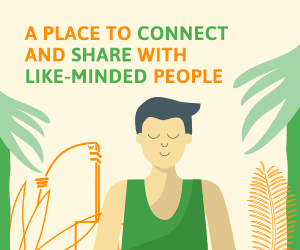Relaxing, fun, mood-enhancing: most of us have enjoyed the short-term benefits of drinking alcohol. But as Dee Marques discovers, many more of us are now choosing to quit alcohol all together due to the mental and physical health gains of living a teetotal life...
You know that warm, fuzzy feeling that comes after having had a few? It can sometimes be hard to say no to the de-stressing effect alcohol, especially after a tough day – or a tough year. Truth is, moderate alcohol consumption has been proven to have a calming or even sedative effect. And that’s precisely why many people have made drinking alcohol a part of their daily routine.
The problem is that there’s a fine line between 'moderate' and 'excessive', and in many countries, excessive drinking isn’t just tolerated, but also encouraged. For example, countries like the US and the UK are known for their drinking culture, since the consumption of alcohol is built into socialising. Indeed, in the UK, it’s estimated that nearly 25 per cent of adults drink more than the recommended daily units, and binge drinking is still a reality for 27 per cent of the population. And in the US, data show that 25 per cent of people over 18 engaged in binge drinking in the month before being interviewed.
• JOIN US! Need support? Sign-up to happiness.com and join a community that cares •
Recent lockdowns and pandemic-related stress have driven even more people to regular drinking, or to increasing the amounts of alcohol they consume. In a UK survey from July 2020, a third of the people admitted to having increased both the frequency and the amount of alcohol they drank during the country's first lockdown.
However, there has also been a shift in attitudes to drinking. Since the mid-2000s, alcohol consumption has been falling, especially among the younger generations. In fact, Brits aged 65 and above are the heaviest drinkers, while 20 per cent of all adults claim to be non-drinkers, with those aged 16 to 24 being the largest group of teetotalers.
“One of the greatest benefits of being teetotal is that your body builds its natural defences against disease. Quitting alcohol can reduce the risk of developing diabetes as well as cancer.”
Also, the low-alcohol or alcohol-free beer and wine market is growing, which suggests a trend towards moderation. Sober September was created a while back to help more people experience the benefits of teetotal living. Need reasons to join the challenge? Here are some.
Reasons to stop drinking
To understand the benefits of teetotal living, we first need to know the consequences alcohol has on mind and body. The effects vary from person to person, depending on their age, health condition and tolerance to alcohol. But the effects exist, and they include:
Physical short-term effects:
- Headaches
- Poor coordination, perception and reaction times
- Slurred speech and blurred vision.
- Nausea and vomiting.
- Drowsiness.
Long-term effects can include:
- Hepatitis and cirrhosis.
- Heart disease and stroke.
- Cognitive problems affecting learning ability, blackouts and brain damage.

Being teetotal means hangovers are a thing of the past shutterstock/Marcos Mesa Sam Wordley
There are also mental health issues linked to frequent alcohol consumption, which include mood swings, disrupted sleep patterns, irritability and depression.
Plus, frequent drinking is also felt in your wallet. The average UK family spends nearly £1,000 a year in booze, whereas some studies say the lifetime cost of drinking is approximately £50,000. In view of the disadvantages, it’s time to weigh the costs against the benefits of being teetotal.
Nine long-term benefits of being teetotal
The benefits of being teetotal are scientifically proven and include:
1. Improved sleep quality
That night cap before bed is not as effective as it may seem. Instant relaxation is often followed by frequent awakenings through the night, since alcohol disrupts the sleep cycle by interfering with the hormones that regulate it.
Once you remove that interference, you’re more likely to enjoy a full night of rest, although a third of heavy drinkers struggle with insomnia when they quit as part of the withdrawal process. But the struggle is worth it and we’ve written about the benefits of deep sleep meditation to help you get through this.
2. More energy
Poor sleep and waking up feeling tired set the mood for the rest of the day. Quit alcohol to experience improved energy levels, which can also motivate you to achieve goals you had set aside just because you were too tired.
3. Clearer skin
Alcohol interferes with the absorption of nutrients and can damage gut health. Once you quit, you give your digestive system a boost so it processes all vitamins and nutrients, which is reflected in skin health.
And because alcohol causes dehydration, one of the benefits of being teetotal is a healthier and more youthful complexion.
4. Healthier weight
When I started exercising regularly, I was surprised at how much my trainer emphasised that better and faster results would come if I didn’t drink alcohol at all. After all, alcoholic drinks are just empty calories responsible for abdominal obesity since they keep the body busy digesting those calories instead of burning fat. Quitting booze can you help make better food choices, as a study found that people are more likely to go for fatty foods after drinking.
“Poor sleep and waking up feeling tired set the mood for the rest of the day. Quit alcohol to experience improved energy levels.”
This handy calculator shows how much money and calories you could save if you gave up your usual alcohol intake. The figures can be quite shocking, even if you only have three or four alcoholic drinks per week, as in my case. It definitely makes you consider the benefits of being teetotal.
5. Better focus
Being alcohol-free can improve cognitive abilities, from decision making to problem solving and enhanced concentration. This type of focus can also help get in touch with your creative side, which has health benefits in its own right.
6. Better mood
Alcohol disrupts several mood-regulating hormones. Once you hormonal profile is stable, you’re less prone to depressive symptoms. Moreover, you can gain self-confidence knowing you have control over your mood and don’t need alcohol to feel better.

Cutting out alcohol is a mood-booster shutterstock/Cookie Studio
7. Improved liver function
We’ve already said that alcohol takes its toll on the liver. This is one of the body’s most important organs, since it supports the digestive system, is responsible for processing nutrients and eliminating toxins. Over the years, even moderate drinking can affect the liver’s ability to function.
• JOIN US! Sign-up free to happiness.com and share your story and challenges •
Fortunately, the liver can repair itself once it’s given a break from alcohol. It’s generally agreed that going alcohol-free for a month while eating healthily and exercising can help boost liver function.
8. Reduced risk of disease
One of the greatest benefits of being teetotal is that your body builds its natural defences against disease. Studies show that quitting alcohol can reduce the risk of developing diabetes as well as various types of cancer and heart disease.
9. Connect with your true strong self
Drinking is the go-to coping mechanism for many people. But is it really a good strategy? Resorting to alcohol to feel better could actually be getting in the way of your self-development. On the other hand, one of the benefits of teetotal living is that it may prompt you to dig deep into the resources you already have or could have to become stronger in the face of adversity.
30 days to experience the benefits of teetotal living
Being alcohol-free can help your body function at its best, reduce the risk of disease and contribute to a more stable mood. I don’t drink much, but I’m curious about what would happen if I didn’t drink at all. So, as it's Sober September, I’ll be trying to stay alcohol-free to experience the benefits of living a teetotal life. Will you join me? •
Main image: shutterstock/wavebreakmedia
happiness.com | The fine art of being: learn, practice, share
Are you a happiness.com member? Sign up for free now to enjoy:
■ our happiness magazine with practical life tips
■ share and support others in our happiness forum
■ self-develop with free online classes in our happiness Academy
Written by Dee Marques
 A social sciences graduate with a keen interest in languages, communication, and personal development strategies. Dee loves exercising, being out in nature, and discovering warm and sunny places where she can escape the winter.
A social sciences graduate with a keen interest in languages, communication, and personal development strategies. Dee loves exercising, being out in nature, and discovering warm and sunny places where she can escape the winter.

Join the conversation
You are posting as a guest. If you have an account, sign in now to post with your account.